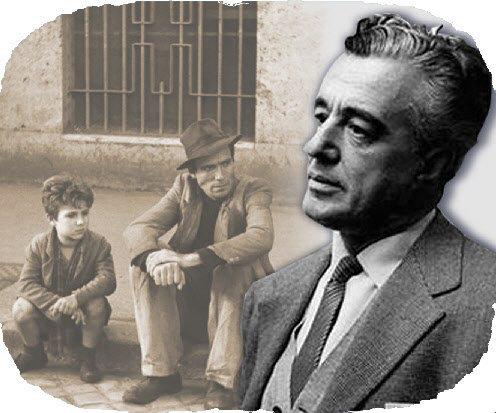Belated sympathy
Belated sympathy
Posted July. 26, 2023 07:54,
Updated July. 26, 2023 07:54

We live in times where uniqueness is valued, but art is essentially based on “borrowing” inspirations from other artists. As Julia Kristeva said, “Any text is constructed as a mosaic of quotations rather than pure creativity.” The ‘bicycle thief’ by writer Kim Sojin does not conceal that the book was inspired by Italian movie director Vittorio De Sica’s movie of the same title.
The movie takes place in Rome after the second world war and focuses on the poor. Antonio’s family is one of such families. Antonio lands a job putting up movie posters. He does this by bike, which is stolen on his first day. He manages to catch the thief, but the bike is already gone. He is devastated. He ends up stealing a bike but gets caught. His son, Bruno, witnesses his father being taken away. The bike owner takes pity on him and lets him go, but Antonio’s authority as a father plummets.
Kim’s novel points out two wounds in the movie. One is Antonio’s humiliation before his son, and the other is Bruno’s witnessing his father’s weakness. The narrator confesses that the father and son in the movie resemble the narrator and his father in many ways. His father, who ran a small shop, suffered from unjust violence by a wholesaler. He was forced to slap his son in the face at his order. The story up to here resembles the movie.
But the difference ends here. The son in the movie holds his father’s hand, while the son in the novel tells himself that he shall not be a father no matter what. They look back on their wounds differently. From another point of view, it was poverty that put the father in misery. Perhaps that is why the novel hints at guilt and sympathy for his father and all fathers of the generation.





![[단독]“거부도 못해” 요양병원 ‘콧줄 환자’ 8만명](https://dimg.donga.com/c/138/175/90/1/wps/NEWS/IMAGE/2026/03/02/133450041.2.jpg)

